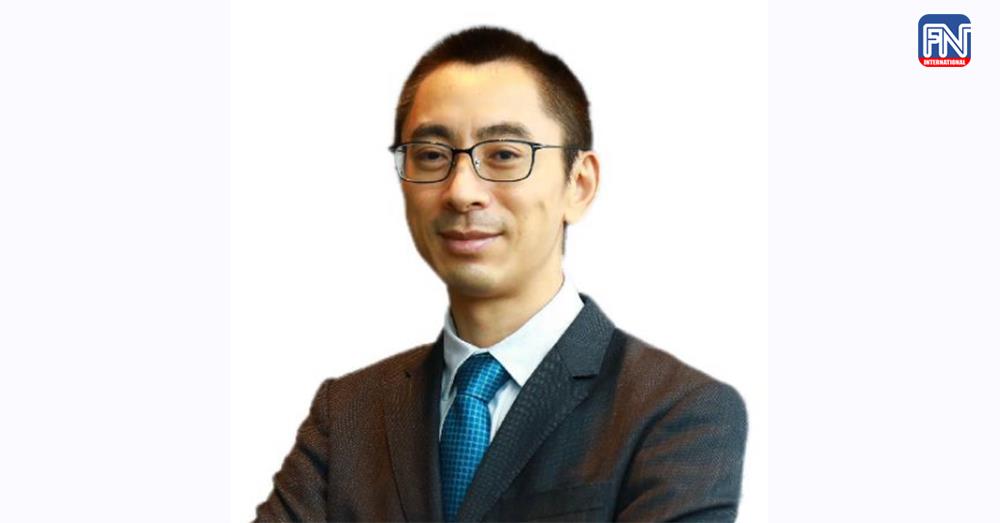Phnom Penh (FN), May 5 – The Asia-Pacific region stands on the cusp of a digital revolution, with Southeast Asia's internet economy predicted to reach USD 1 trillion by 2030. As countries across the region proactively embrace digitization, the demand for skilled digital professionals soars. In parallel, automation is displacing jobs, making reskilling and upskilling the workforce vital for a smooth transition into a digital-centric future.
A Gallup study highlights the glaring skills gap – In Asia Pacific, over three-quarters (76%) of employers have job openings that require digital skills, while almost as many (72%) struggle to fill these positions. The demand for tech-savvy talent is not confined to the tech industry but extends to healthcare, mining, and other sectors that are undergoing digital transformation.
To address this issue, tailored training programs are essential in cultivating a workforce prepared for both today's challenges and tomorrow's uncertainties. Tech providers like Huawei, with their wealth of industry experience and innovation capacity, can play a pivotal role in this endeavour.
In Asia Pacific, Huawei has established the PIPES Talent Model as a blueprint for digital talent development. PIPES, an acronym for Platforms, Innovation, Professionalism, Experience, and Skills, delivers customized talent programs for individuals from all walks of life, including younger generations, policymakers, ICT practitioners, entrepreneurs, and the general public. By fostering a strong talent pipeline, Huawei is not only investing in our own future but also contributing to the digital prosperity of the entire region.
Platform: Facilitating Interchange and Incubation
In collaboration with universities, governments, and industry partners, we have established a dynamic ecosystem of virtual and physical platforms, empowering individuals and communities by connecting them to shared ideas and resources.
The recently concluded regional ICT Competition in Indonesia exemplifies this commitment, as it built a global stage for university students to exchange ideas, showcase their creativity, and apply ground-breaking technologies. Since 2018, Huawei has forged partnerships with over 300 universities in the Asia-Pacific region, training more than 50,000 students through collaborative curriculum development, online learning platforms, and the ICT Competition.
For budding entrepreneurs, the "Huawei Cloud Incubator" empowers tech start-ups with access to our Cloud platform. To date, the program has supported over 110 start-ups across the region.
Innovation: Fueling Ideas and Technologies
Aimed at inspiring future leaders with ideas and cutting-edge technologies, we are delivering state-of-the-art science and technology trainings while fostering appreciation and literacy of emerging issues within the tech ecosystem. Launched in Thailand in 2008, the Seeds for the Future program empowers university students through technology-driven, inventive training sessions and exposure to unique culture.
The accompanying Tech4Good Competition encourages participants to develop creative solutions to pressing social problems, shaping a generation of socially-aware leaders. One of the regional winners of last year was a delegation from the ASEAN Foundation, which introduced a project titled "N-ABLE" – an inclusive platform that pairs individuals with special needs to jobs through consultation, job matching, and training.
On March 31, the Asia-Pacific OpenLab 3.0, Huawei's most recent regional center for joint innovation and solution R&D, is set to launch. Equipped with four pioneering ICT technology labs, the latest iteration of Huawei's OpenLab celebrates the synergy of innovation capacity from Huawei and our partners, with a purpose of advancing innovation and digital transformation throughout Singapore and the APAC region.
Professionalism: Cultivating a Digital-Ready Workforce
We are gearing up a future-ready workforce with ICT certification, mentorship, networking resources, and pre-employment trainings, etc., and we are not doing this alone.
In Singapore, Huawei ICT Academy partnered with Singapore Polytechnic to introduce an industry certification-based course, covering domains including programming, AI and Cloud solutions. Mid-career individuals can leverage these courses to upskill and boost their employability within the tech sector.
Back in 2020, under the guidance of KSP and working with various government departments in Indonesia, we launched the 100k digital talent program to nurture 100,000 Indonesian professionals in 5 years. Today, three years later, the target is 80% complete.
Experience: Leveraging Industry Expertise and Know-How
As a tech provider rooted in Asia Pacific for over 20 years, Huawei has amassed invaluable industry expertise and know-how. We are ready to transfer this wealth of knowledge to individuals, organizations, and communities across the region.
The Business Institute under our ASEAN Academy, in particular, provides Huawei’s accumulated experience in company management and digital transformation, to C-level executives and government officials, helping them navigate the complexities of the digital era and make informed decisions.
Skills: Advancing Digital Literacy and Leadership
The ASEAN Academy's Technical, and Engineering Institutes cater to the needs of ICT practitioners, offering trainings in ICT certification, onsite skills, and more. By 2022, the ASEAN Academies in Thailand, Indonesia, and Malaysia have nurtured over 75,000 professionals.
Inclusivity is at the core of Huawei's approach, ensuring that no one is left behind. In Thailand and Bangladesh, digital buses have equipped more than 60,000 women and children with necessary digital skills in remote areas. In the Philippines, over 10,000 kids from 15 villages now get access to distance learning with our School-in-a-Bag project.
In 2021, the Indonesian Parliamentary Women's Caucus, or KPP-RI, and Huawei jointly held a workshop to better prepare female lawmakers for a digital era, bolster their leadership skills, and enable them to take on more important roles in the future.
Ultimately, closing the skills gap requires a concerted effort from governments, industries, and educational institutions. Through establishing strategic partnerships, pioneering innovative research, crafting customized learning resources, and sharing the latest industry experience, we can create a dynamic and resilient job market capable of weathering the challenges of the digital era.
Together, we have the power to shape the digital landscape of the Asia-Pacific, ushering in a new age of prosperity, innovation, and opportunity. The time to act is now.
By Jun Zhang
President of Public Affairs and Communications, Huawei Asia Pacific
=FRESH NEWS





